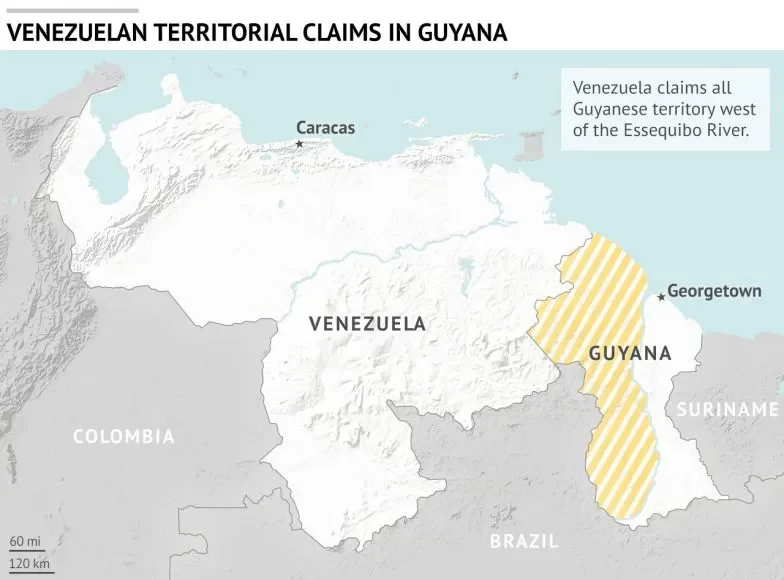The UN Security Council recently addressed the status of the Esequibo region, caught between Venezuela’s claims and Guyana’s administration.
This area, notable for its vast oil and mineral wealth, remains a significant dispute point.
Carolyn Rodrigues-Birkett, Guyana’s envoy, reported widespread support for her country’s stance on maintaining the region’s current boundaries.
This meeting responded to Venezuela’s President Nicolás Maduro’s move on April 3, declaring Esequibo a part of Venezuela.
Guyana denounces this as a direct challenge to international norms and a violation of a 2023 ICJ order.

Back in 2018, Guyana sought the ICJ’s endorsement of a 19th-century arbitration that set the existing border, highlighting the dispute’s deep historical roots.
The discovery of oil by ExxonMobil in 2015 intensified this long-standing conflict. A decision from the ICJ is awaited, expected no earlier than next year.
The issue reached the UN in December, post a Venezuela-led referendum aiming to annex Esequibo.
Days later, talks between the two countries’ leaders sought to ease tensions without concrete outcomes.
At the latest UN dialogue, Venezuela promised no military action, yet discrepancies between words and deeds keep Guyana on alert.
This scenario underlines a broader issue of colonial legacies clashing with modern-day international law, emphasizing the delicate balance between national sovereignty and global diplomatic efforts to resolve disputes peacefully.
The Esequibo’s fate, thus, not only impacts Guyana and Venezuela but also sets a precedent for international conflict resolution.

